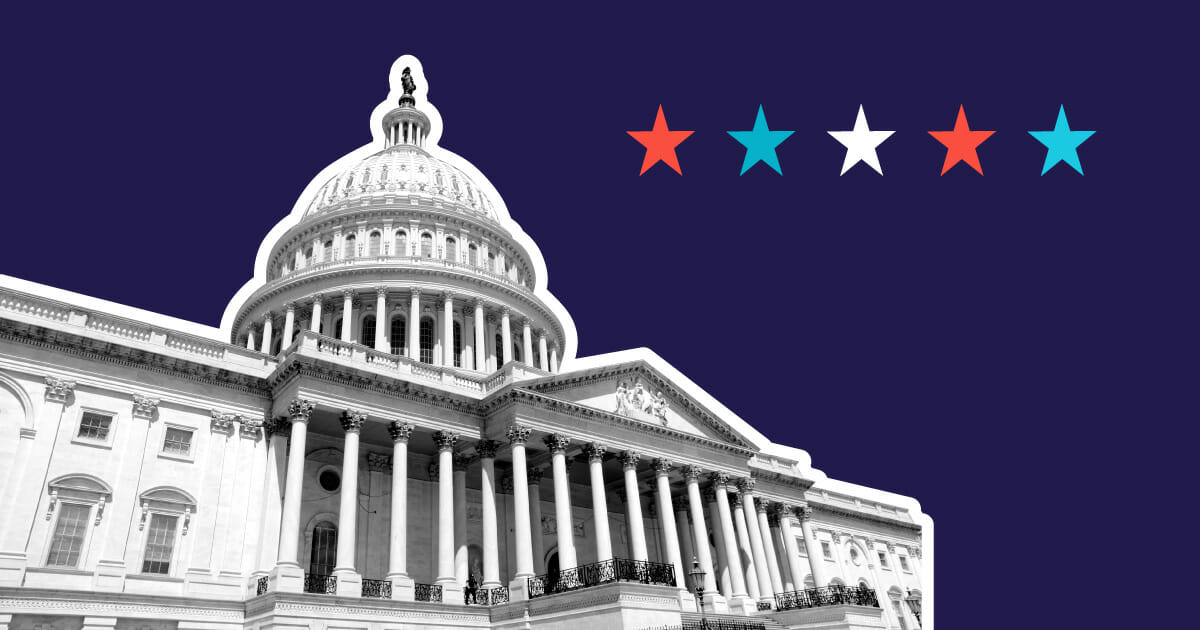COVID-19, Federal Efforts
Congress Adds Key USofCare Policy Priorities to Historic Legislation

On March 19, United States of Care submitted to Congress a policy agenda that will benefit both people and the health care system as our nation fights the COVID-19 pandemic.
When building the agenda we sent to Congress we focused on the needs of people – our families, our neighbors and our health care workforce. This includes protecting the needs of front line health care workers; supporting the financial needs of people as we face an economic downturn; ensuring financial protections for those who have COVID; and protecting the most vulnerable among us.
Congress has worked furiously to pass historic legislation protecting individual Americans and providing the tools our health care system needs to fight this pandemic.
On March 25, the U.S. Senate voted 96-0, followed by a unanimous vote in the U.S. House of Representatives two days later, to pass extraordinary legislation including many of USofCare’s suggestions and reflects the five pillars of our agenda:
Agenda Item #1: Provide significant, sustained support for front line health care workers.
The Congressional bill includes:
- $100 billion in aid directly to hospitals for costs related to treating COVID-19.
- The bill supports health care workers by funding the purchase of personal protective equipment, testing supplies, increased workforce and training.
Agenda Item #2: Providing Americans the financial resources to weather extended isolation and job loss.
The Congressional bill includes:
- Direct emergency payments of $1,200, plus an additional $500 per child for those making $99,000 or less; $150,000 or less per couple.
- $250 billion of extended unemployment insurance and provides those not working an additional $600 per week for four months. The bill also extends benefits through the end of the year. In a historic first, the legislation applies to the self-employed, independent contractors and those in the gig economy.
Agenda Item #3: Support the health care costs for those impacted by COVID-19 and the economic downturn, including patients, health care providers and states. People needing medical care for COVID-19 should not face financial devastation.
The Congressional bill includes:
- $150 billion for state and local governments.
- Requirements that private insurance, Medicare, and Medicaid cover COVID-19 testing with no out-of-pocket costs for people.
- Requirements that COVID-19 vaccines, when developed and available, are covered by insurance with no out-of-pocket costs for people.
Agenda Item #4: Protect and serve the populations most at-risk from COVID-19.
The Congressional bill includes:
- Funding for important nutrition programs, including $8.8 billion for child nutrition and $15.81 billion for supplemental food assistance.
- Provisions to address potential prescription drug shortages, including extending Medicare drug refills to 90-day supplies.
- $200 million to assist nursing homes with infection control and help states in preventing the spread of coronavirus in nursing homes.
- $3.5 billion for the Child Care Development Block Grant to support childcare centers to remain open including emergency staffing needs.
- Allows for the rapid scale-up of telehealth services in Medicare including eliminating the requirement that providers must have had to treat a patient sometime during the past three years in order to offer telehealth services and allowing federally qualified health centers (FQHC) to offer telehealth services.
Agenda Item #5: Put the full resources of the entire nation to their maximum use.
The Congressional bill includes:
- $1 billion for purchases under the Defense Production Act to use the full power of America’s manufacturers to increase the production of personal protective equipment to meet the demand of health care workers nationwide.
- Requirements that certain medical supplies and drugs be included in the strategic national stockpile.
- Requirements that additional drug manufacturer notification and reporting be mandated in response to drug shortages.
Next Areas of Focus
This will probably not be the last legislative effort to help America fight the pandemic; the next effort should include discussion around an emergency $5,000 per month payment to front line health care workers. Many people, including those without health insurance, also remain exposed to high costs from COVID-19 care and treatment. As lawmakers consider additional measures, USofCare will continue to rely on the expertise of our Board and Founders Council, Entrepreneurs Council, and Voices of Real Life to inform policy makers at the state and federal level.